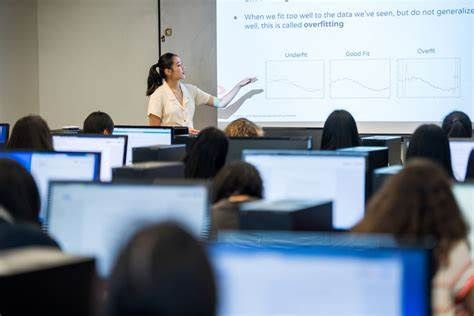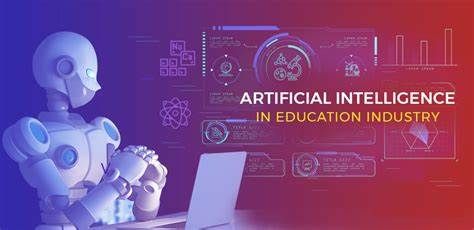From personalized learning algorithms to AI-powered tutoring programs, the educational landscape is evolving rapidly as countries explore innovative ways to harness the potential of AI in education.
Have you ever wondered how Ministries of Education around the world are incorporating Artificial Intelligence (AI) into schools? Can you mention your own experience from your country?
-
The Integration of Artificial Intelligence in Schools by Ministries of Education Worldwide
-
The integration of artificial intelligence (AI) in schools by ministries of education worldwide is a growing trend aimed at enhancing education quality, preparing students for the future workforce, and fostering innovation in teaching and learning. Here are some key points regarding this trend:
-
Curriculum Integration: Ministries of education are increasingly incorporating AI-related topics into school curricula at various levels. This includes introducing basic concepts of AI, such as machine learning and algorithms, as well as teaching students how to utilize AI tools and technologies effectively.
-
STEM Education Enhancement: AI education often aligns with STEM (Science, Technology, Engineering, and Mathematics) education initiatives, as AI encompasses principles from these disciplines. By integrating AI into STEM curricula, ministries of education aim to cultivate students' interest and proficiency in these fields.
-
Skills Development: Ministries of education recognize the importance of equipping students with AI-related skills, such as data analysis, programming, and critical thinking. These skills are increasingly valuable in the modern workforce, where AI technologies play a significant role across various industries.
-
Teacher Training: Alongside student education, ministries of education are also focusing on training teachers to effectively integrate AI into their teaching practices. This includes providing professional development opportunities, workshops, and resources to help educators incorporate AI tools and methodologies into their classrooms.
-
Partnerships with Industry: Collaboration with industry partners is often crucial in implementing AI education initiatives. Ministries of education may work with technology companies, research institutions, and AI experts to develop educational resources, provide training, and offer real-world experiences for students.
-
Ethical Considerations: As AI technologies raise ethical concerns related to privacy, bias, and automation's societal impacts, ministries of education are increasingly emphasizing the importance of teaching AI ethics and responsible AI use. This includes discussions on fairness, accountability, transparency, and the ethical implications of AI systems.
-
Global Initiatives and Standards: Some efforts towards integrating AI in education are part of broader global initiatives. Organizations like UNESCO and the OECD promote the development of AI education policies and guidelines, facilitating international collaboration and the exchange of best practices among countries.
-
Inclusive Education: Ministries of education strive to ensure that AI education initiatives are accessible and inclusive for all students, regardless of their backgrounds or abilities. This may involve addressing digital divide issues, providing resources in multiple languages, and accommodating diverse learning needs.
-
Research and Evaluation: Continuous research and evaluation play a crucial role in assessing the effectiveness of AI education initiatives and informing future policy decisions. Ministries of education may conduct studies, gather feedback from stakeholders, and monitor the impact of AI integration on student outcomes and teacher practices.
-
Adaptation to Technological Advancements: Given the rapid evolution of AI technologies, ministries of education must stay abreast of the latest developments and adapt their education policies accordingly. This may involve updating curricula, revising teacher training programs, and embracing emerging AI applications in education.
Overall, the integration of AI in schools by ministries of education reflects a commitment to preparing students for the opportunities and challenges of the AI-driven future, fostering digital literacy, and promoting lifelong learning in a rapidly changing world.
_1715612591714.jpg)


"Empowering students through engaging education, fostering environmental consciousness, and advancing scientific literacy. Committed to shaping future leaders in Life and Earth Sciences."
-
-
@Antonia In our country, great attention is currently being paid to the modernization and digitalization of the educational process at all levels. Of course, AI is a great helper and a tool to achieve this. There are many thematic conferences and training seminars. However, for the most part, it is about generating materials and creative tasks.
-
Hi,
Hope everything is going well. Here in Puerto Rico, we are waiting for our Puerto Rico Department of Education to finish the process of AI policy in education scenarios. Hope this bring resources for us as teachers to promote more learning experiences based in differentiated education.
Best,
Mr. Bryan -
Hello everyone,
As a preschool educator in Serbia, I am thrilled to see the Ministry of Education taking steps towards integrating artificial intelligence (AI) into our schools. Serbia has established a National AI Platform and is actively working on strengthening digital literacy and skills among both students and teachers. Through various initiatives, including conferences where experts discuss the responsible application of AI in education and the implementation of STEAM (Science, Technology, Engineering, Arts, and Mathematics) programs, our educational system is becoming more dynamic and future-ready. AI-driven platforms can help identify students' strengths and weaknesses, enabling tailored instruction that meets individual needs. It is essential, however, that we provide adequate training for teachers to use these technologies effectively and ensure that the content remains age-appropriate.
Best regards,
Marija Krstic Radojkovic
marijakrstic016@homail.com -
Hi Marija,
Hope everything is going well.It's wonderful to read your enthusiasm about the integration of AI in Serbia's education system. The Ministry of Education's steps to enhance digital literacy and establish a National AI Platform demonstrate a forward-thinking approach that will significantly benefit both teachers and students. Hope to see this in Puerto rico soon. I think it's crucial to provide adequate training for us as teachers to effectively use these technologies and to ensure that the content remains age appropriate.
Best,
Mr. Bryan -
@Antonia Yes, AI is transforming education globally.
Global AI in Education:
- Personalized learning
- AI tutoring
- Data analytics
- Automating admin tasks
In Pakistan: - E-learning platforms
- Smart classrooms
AI integration is promising but still in early stages here.
Shazia Baloch
JEST Teacher
Address: Sindh Pakistan -
Hi Antonia I was really ahppy to read your post as it is one of the things I am working on with a team of teachers here in Tunisia. The problem is that ministries are a bit reluctent to implement Ai is the educational programs that need first to be updated to fit the new era of edtech. Your ieda is futuristic and can be more fruitful if adopted in rich countries as it requires training and modern technologies.
-
Ghana's education minister is working tirelessly with the Government of Ghana to implement a policy that is actively exploring the integration of AI, with a focus on both equipping students with relevant skills and leveraging AI tools for improved learning experiences. The Ghana Ministry of Education is working towards a more comprehensive approach, including curriculum reform, infrastructure development, and assessment strategies.
# Here's a more detailed look at Ghana's approach:
1**. AI in the Curriculum:**
The Ministry is developing a National AI in Education Framework, which will outline clear benchmarks for AI integration across primary and junior high school levels.- Curriculum Reform:
Existing ICT, science, and creative arts syllabi are being adjusted to incorporate basic AI concepts, ethics, and real-world applications.
Project-Based Learning:
Students at the junior high school level are expected to engage in project-based AI tasks.
# 2. Infrastructure and Access: - Digital Devices:
Efforts are underway to ensure that digital devices are available in every district, through a combination of government procurement, cost-sharing models, and corporate partnerships. - Digital Literacy:
The overall goal is to develop the desire and competence in children to use ICTs and equip learners with necessary ICT skills.
- Curriculum Reform:
-
@Antonia AI is undoubtedly transforming the educational landscape, offering new possibilities for personalized learning, real-time feedback, and inclusive education. It's exciting to see how various Ministries of Education are integrating AI into their national strategies. In my country, we've seen a growing use of AI tools in classrooms — from intelligent tutoring systems to automated grading platforms — which are helping teachers manage workloads and support diverse student needs. While challenges like data privacy and teacher training remain, the potential for AI to enhance learning outcomes is truly promising."